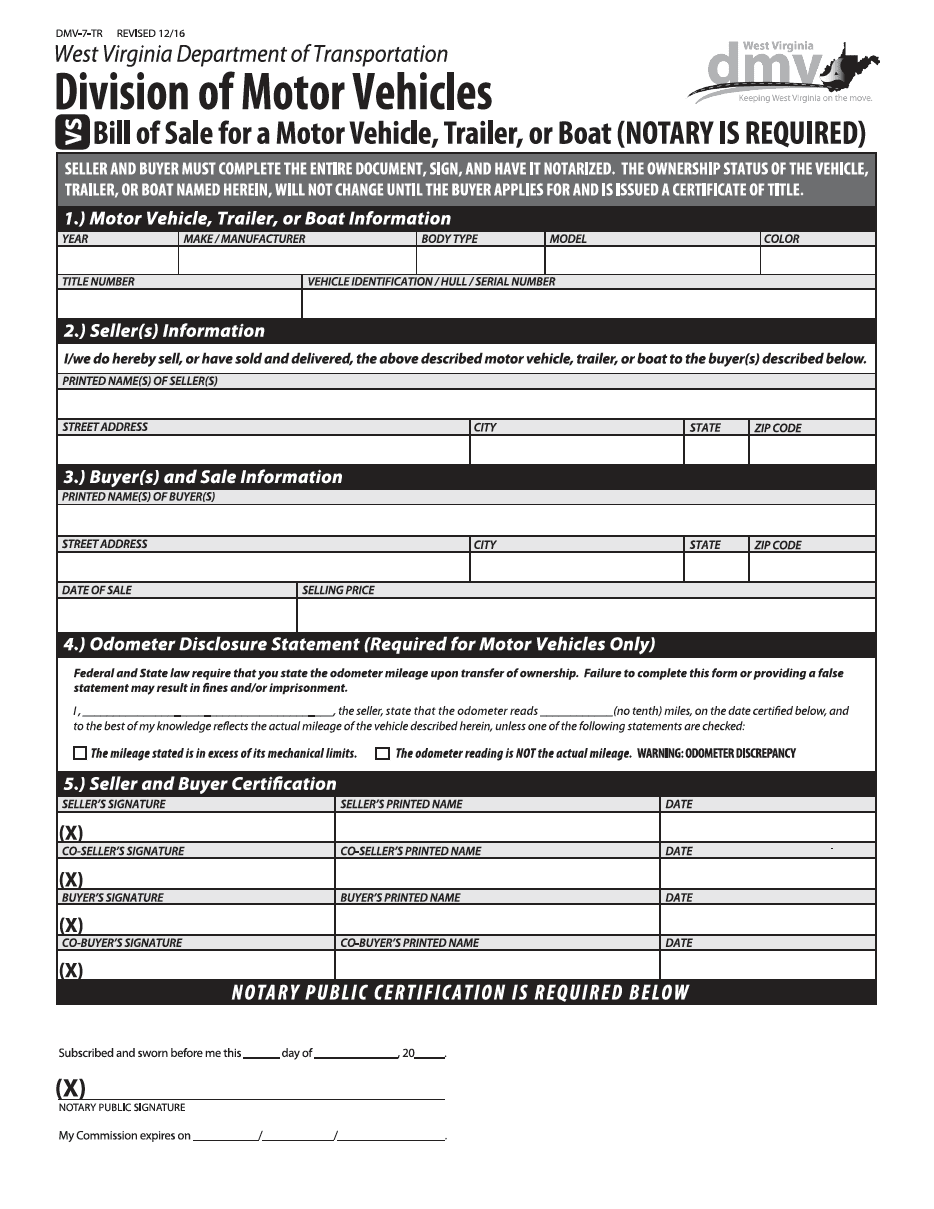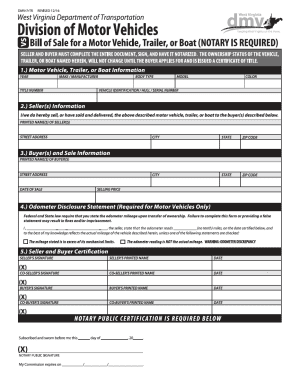West Virginia Bill of Sale Forms
A West Virginia bill of sale form grants the new owner the status of “titleholder,” absolving the previous owner of liability. When an item lacks a title, the buyer assumes the role of “rightful possessor,” becoming accountable for repairs, damages, and other legal matters related to the property. This legal document serves as essential evidence of the transaction, providing both parties with a clear record of the sale and its conditions.
Summary
|
Types (5)
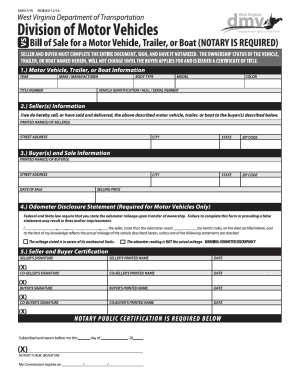 Boat Bill of Sale – A document that contains facts about how and when a seller transferred possession of a vessel to an interested party.
Boat Bill of Sale – A document that contains facts about how and when a seller transferred possession of a vessel to an interested party.
Download: PDF
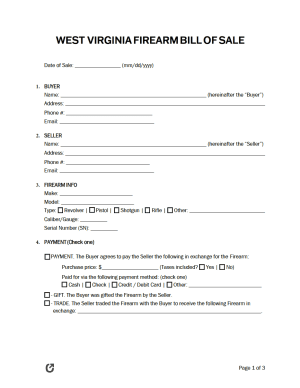 Firearm Bill of Sale – Demonstrates the legal trade of a gun from one person to another.
Firearm Bill of Sale – Demonstrates the legal trade of a gun from one person to another.
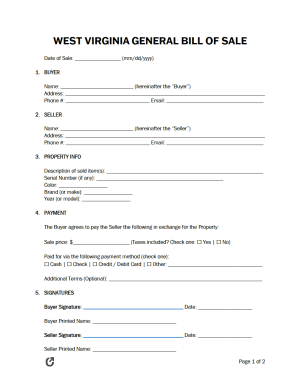 General Bill of Sale – Meets the criterion for proving ownership after acquiring a personal belonging from someone else.
General Bill of Sale – Meets the criterion for proving ownership after acquiring a personal belonging from someone else.
Download: PDF |
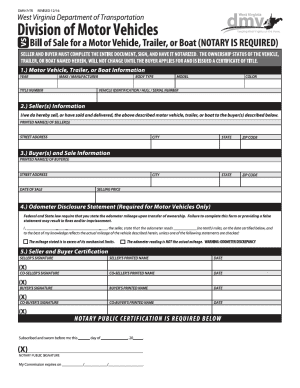 Trailer Bill of Sale – This form characterizes the buyer as the primary possessor and the seller as the past titleholder.
Trailer Bill of Sale – This form characterizes the buyer as the primary possessor and the seller as the past titleholder.
Download: PDF
Signing Requirements
| Bill of Sale Type | Buyer Signature | Seller Signature | Notarization |
| Boat | Required | Required | Required |
| Firearm | Required | Required | Not required |
| General (others) | Required | Required | Not required |
| Motor Vehicle | Required | Required | Required |
| Trailer | Required | Required | Required |
What is a West Virginia Bill of Sale?
A West Virginia bill of sale form displays the information of a buyer and seller involved in transferring personal property. This document enables contact between parties if any issues or inquiries emerge after the sale, accurately describing the item’s make, model, year, color, mileage, identification number, and other relevant identifiers.
The state offers a versatile official document for boat, car, and trailer transactions. When registering the property, the buyer must submit the completed and signed form to the Division of Motor Vehicles (DMV). Even for items not requiring registration, a bill of sale remains beneficial, summarizing and validating the change in ownership.
West Virginia law mandates notarization for vessel, vehicle, and trailer bill of sale forms. The DMV requires a notary seal, stamp, or signature on the document to accept registration documents. The seller must arrange an appointment with a local certified professional to complete this process, which they can achieve through eSign.com for a $25 fee.
Registration Forms: Boats
Vessel owners must provide registration documents and payment to a regional office.
|
Additional (Optional) Documents
- Affidavit of Builder (Form MB-11-TR) – For homemade boats only.
- Manufacturer’s Certificate of Origin – New boats purchased from a dealer only.
- Owner and Purchasing Affidavit (Form MB-12/13) – For previously owned boats without a title or registration.
Registration Forms: Firearms
West Virginia does not require the registration of guns. To ease the restrictions on concealed carry, however, residents can apply for a concealed pistol or revolver license. If they meet the standard requirements, they must send the applicable documents to their local sheriff’s office.
|
Registration Forms: Vehicles
Car registration must occur at a DMV regional office.
|
Additional (Optional) Documents
- Odometer Disclosure Statement (Form DMV-TM-1) – Only for titled cars ten (10) years or newer without an odometer reading.
- West Virginia Motor Vehicle Power of Attorney – A form for providing an individual with temporary decision-making powers over a vehicle.
Registration Forms: Trailers
Trailer owners must apply for registration through a DMV office.
|
